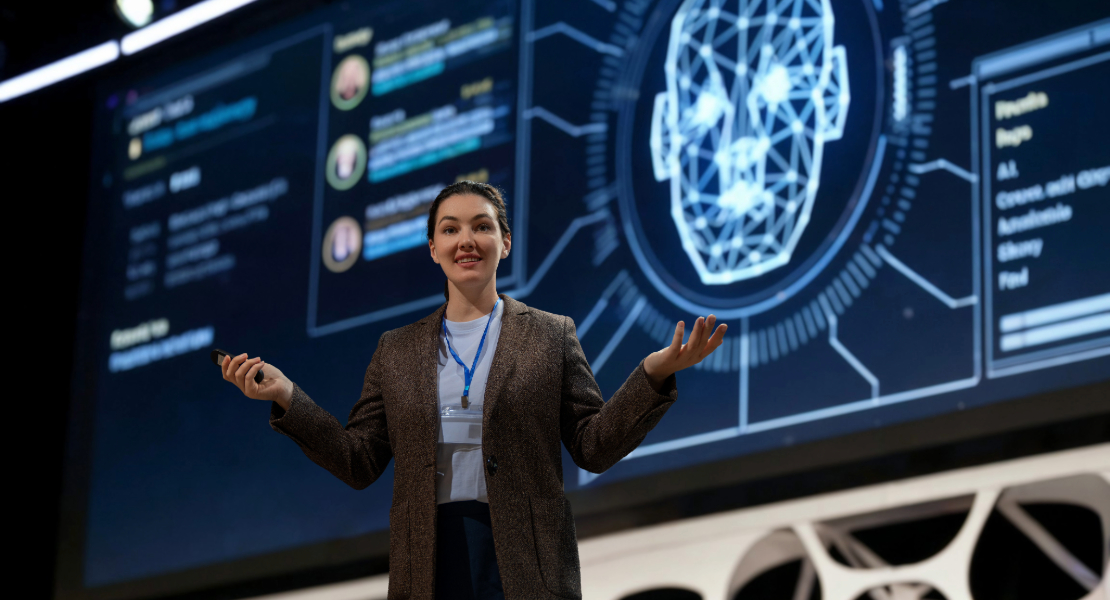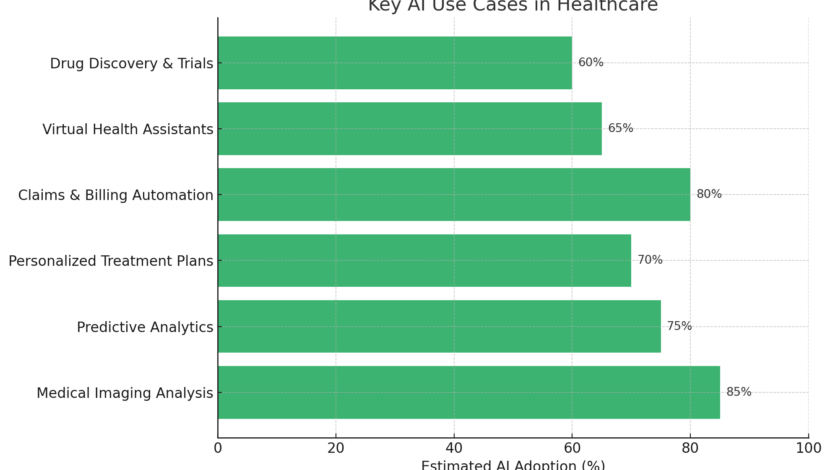Let’s explore how AI is creating real impact across the healthcare system — and how it could transform yours.
1. Radiology – AI That Sees More, Faster
Hospitals like Stanford Health and Mayo Clinic use AI models trained on millions of scans to detect fractures, tumors, or signs of disease earlier than the human eye. AI in radiology speeds up diagnosis and improves accuracy, freeing up doctors for patient-facing work. In fact, some models have matched or even surpassed radiologists in detecting early signs of breast cancer.
2. Predictive Analytics – Stopping Disease Before It Starts
AI is helping providers analyze patterns in medical records and wearables to detect risks for conditions like heart failure or diabetes — before they become critical. Tools like Health Catalyst and Epic’s cognitive computing modules are enabling hospitals to identify high-risk patients and intervene earlier, improving outcomes and reducing readmissions.
3. Claims & Admin – Automating the Paper Trail
Back-office inefficiencies cost healthcare billions each year. Companies like Olive AI and Change Healthcare use automation and AI to handle claims, pre-authorizations, and billing. The result? Faster reimbursements, fewer denials, and more time for staff to focus on patients — not paperwork.
4. Personalized Treatment – Precision Medicine at Scale
AI helps clinicians design treatment plans tailored to each individual — based on genetic data, medical history, and lifestyle. IBM Watson, for example, has been used to identify cancer treatment options aligned with a patient’s DNA. What used to be considered cutting-edge is now becoming scalable across oncology, cardiology, and beyond.


